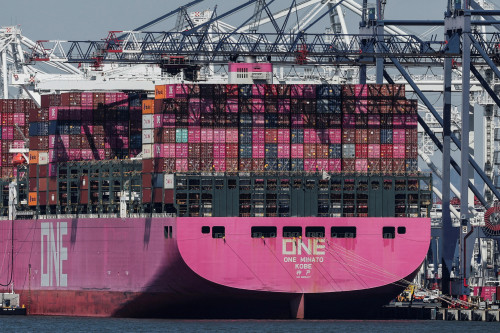By Steve Holland and Andrea Shalal
NEW YORK/PHILADELPHIA (Reuters) – Republican presidential candidate Donald Trump will visit North Carolina on Monday amid concerns from his Republican allies that crippling damage from storm Helene will depress turnout in the battleground state’s conservative mountain regions.
Democratic candidate Kamala Harris planned to campaign in Wisconsin, Michigan and Pennsylvania with former Republican lawmaker Liz Cheney, who has warned that Trump is a threat to democracy and should not be elected on Nov. 5.
Harris, arguing that Trump is unfit to serve, is turning to Cheney to try to enlist support from more Republican voters who cannot fathom the idea of handing the former president another four years in the White House after a tumultuous 2017-2021 term.
With polls showing a race too close to call, the two candidates are picking up the pace of campaigning with a little more than two weeks to go until Election Day on Nov. 5.
Trump conducted a campaign stop at a closed McDonald’s restaurant in suburban Philadelphia on Sunday, donning an apron and frying potatoes but not answering directly when asked if he would support an increase in the minimum wage that would benefit fast-food workers.
Trump on Monday is scheduled to make a midday stop in Asheville, North Carolina, a city that suffered severe damage from the storm Helene last month that flooded rivers and washed out roads, homes and bridges across a wide section of the state.
Trump, expected to survey storm damage, told reporters on Sunday that he wanted to make the stop “just to let the people know that I’m with them.” He planned two other stops in the state on Monday.
He renewed unsubstantiated claims that the response from the administration of President Joe Biden has been slow, accusations strongly rejected by the White House as misinformation.
North Carolina is one of seven competitive swing states that both Harris and Trump have a shot at winning, and their campaigns are fighting hard for every vote. Polls show the two candidates running about even in North Carolina.
The area hit hardest by Helene is deeply Republican. Trump won about 62% of the vote in 2020 in the 25 counties declared to be a disaster area after Helene, while Biden won about 51% in the remainder of the state, according to a Reuters analysis.
North Carolina lawmakers passed legislation on Oct. 9 that included several measures aimed at making it easier for residents affected by Helene to vote.
But some Republicans are worried even a slight downturn in Republican turnout in the area could result in Harris winning the state and could be pivotal in a close election.
Harris and Cheney will hold a series of moderated conversations in suburban communities in Pennsylvania, Wisconsin and Michigan as her campaign works to win over the small but potentially influential group of undecided voters.
Cheney and her father Dick Cheney, who was vice president under George W. Bush and is still vilified by Democrats for his bullish defense of U.S. invasion of Iraq, are staunch conservatives and two of the most prominent Republicans to have endorsed Harris.
Cheney was the top Republican on the House of Representatives committee that investigated the Jan. 6, 2021, attack on the U.S. Capitol by Trump supporters, earning Trump’s disdain and effectively exiling her from the party.
(Reporting By Steve Holland and Andrea Shalal, editing by Ross Colvin and Lincoln Feast.)




